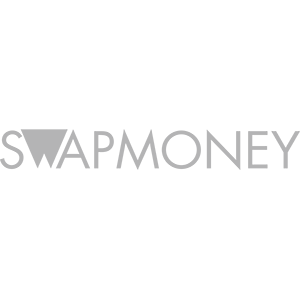In the race to be Europe’s leading Fintech capital London is the pace setter – significantly further ahead of its competitors. Second in the race is Berlin. As the biggest market in the EU, 2021 saw Germany enjoying a 2.6 billion investment in Fintech, compared to France’s 1.8 billion.
Germany looks set to stay ahead of France. Its buoyant Fintech start up scene, centered in Berlin, attracts international top talent, not only because of the high level of English language adoption (the common language of cross-border payments), but also because of its startup-friendly laws, and stability within the Eurozone. And with all this comes the accompanying slew of VC investments that have made Fintech and Insurtech Germany’s single biggest recipients of VC investment.
Germany and France, a tight race
Germany’s 700 (and growing) active startups in Fintech make it the go-to destination for foreign investors seeking a slice of the European market. October 2021 saw France’s Swile $200 million investment be almost instantly eclipsed by Germany’s N26 receiving more than $900 million in Series E funding – and a valuation of $9 billion. The Berlin-based neobank’s co-CEO Maximilllian Tayenthal announced in March 2022 that N26 will be prepared for an initial public offering by the year’s end. France and Germany are increasingly neck-and-neck when it comes to unicorn creation. Statista noted in December 2021 both countries had 22 (compared to the UK’s 36).
Fintech innovations: why Germany is ahead
Germany’s magnetic pull for Fintech investors is even more dramatic when you consider that 2020 saw only €900 million invested. And what was the segment that attracted the most investment? Digital Payments. They are the goose laying the golden egg. Data from Statista predicts that between 2022 and 2026 the total transaction value of digital payments will show an annual growth rate of 12.10%, which will lead to a projected total amount of $413bn by 2026. The sector’s total transaction value is predicted to rise to around $262bn in 2022. While a recent Germany Trade and Invest (GTAI) report predicts that in 2023 Germany’s average digital payment transaction value per German customer will be €2,948.
One of the reasons why Germany’s Fintech market is thriving is that it’s an innovation-friendly environment. There’s a mature infrastructure in place, thanks in part to Angela Merkel’s 2018 grand coalition deal which pointedly stated its intent to strengthen Germany’s role as a leading Fintech location.
German Fintechs will continue to grow because of its flexible laws that encourage investors and innovation. The Crowdfunding Regulation (EU) 2021/1503 became law in 2020, making it easier for crowdfunding platforms to offer their services across the EU and improve access to crowdfunding for Fintechs. While this is an EU-wide regulation, it has made Germany in particular more attractive to investors due to a combination of the federal government’s active support of startups and Fintechs, the country’s position as a leading financial center, strong GDP growth, and continued funding from domestic and international investors.
While laws for traditional banking are less flexible and adaptable, is changing the finance model, and BAAS, SAAS or API integration with partners are increasingly attractive ways to take advantage of this more liberated environment.
Germany has several laws containing regulations dealing with consumer protection in ecommerce. In particular, the German Civil Code and the Introductory Law to the Civil Code have enshrined European Directives on distance selling of financial products into German law.
Add in the fact that internet penetration levels in Germany are around 94% according to a Statista report cited by GTAI, and that Germany has the highest share of online payment users in the world, it’s easy to see why the success of Germany’s Fintechs will continue.
Together, wins
While some Fintechs view each other as active competitors in an increasingly crowded field, others are using their competitors’ competencies as a ladder for growth. Cross-segment partnerships get startups to market more quickly, and increase access to a larger consumer pool. German startup partnered with Europe’s leading Banking as a Service (BaaS) Fintech in October 2021. Bling Card used Treezor’s technical and regulatory payment functions to launch its financial education app in Germany. But it’s not just the whale helping the minnow. It works both ways – the partnership with Bling Card has meant Paris-based Treezor can offer its services in Germany for the first time.
Cross border is where the race will be won
Germany is home to 3.6 million registered SMEs, of which over 350 000 export to global markets. In import and export ecommerce, Germany is the third most active country worldwide, behind only the US and UK. In terms of cross-border sales, Germany’s online merchants sell mostly to France (5.9 million), Austria (5.5 million), and Italy (5 million). German online shopping trends show cross-border purchases mainly come from the UK (11.1 million), the US (8.6 million), and China (6.2 million).
Get set for an innovative future
Whether it’s embedded finance, Buy Now Pay Later (BNPL), ewallets, or cross-border payments, German consumers have embraced the innovations inherent in Fintech and payments, with 28% of online payments made by ewallet, and 21% via BNPL. With 26% of Germans deliberately avoiding paying with cash post-pandemic, and the digital payment market volume in Germany estimated to be 149.2bn in 2023, the opportunities for digital payments are huge. When you consider that Germany is the third most active country worldwide both in import and export ecommerce, behind only the US and the UK, the future for ecommerce is clearly international.
Germany is a leader in attracting worldwide Fintech investors, and is a stable base from which to conduct cross border transactions. However, with cross border comes the challenge of higher payment fees, FX costs, regulatory challenges, and the time it takes to establish relationships with banks in every country traded with. Not to mention factoring in that nearly 8% of international transactions are declined during the approval process.
German-based Fintechs looking to conduct cross-border transactions can work with partners who can do the heavy lifting around otherwise challenging and time consuming areas of compliance and regulations. One partner is Currencycloud, a platform that empowers Fintechs, from start ups to established players like Revolut, to plan for seamless cross border growth into new markets.
Currencycloud enables Fintechs to instantly access over 180 countries and 38 currencies to efficiently move money across borders. The platform allows Germany’s Fintech startups to compete with major industry players and offer their customers real value, because they have access to real-time, competitive FX rates seven days a week.
Whatever partners a German Fintech chooses, the country’s mature financial market, startup-friendly regulations, proximity to East and Central Europe, a high rate of English speaking professionals, means they are already ahead of the race to be the leading destination for Fintech, just by being in Germany.
Find out how Currencycloud can help your Fintech continue to innovate and stay ahead, contact Jasper Ehrhardt at Currencycloud.




